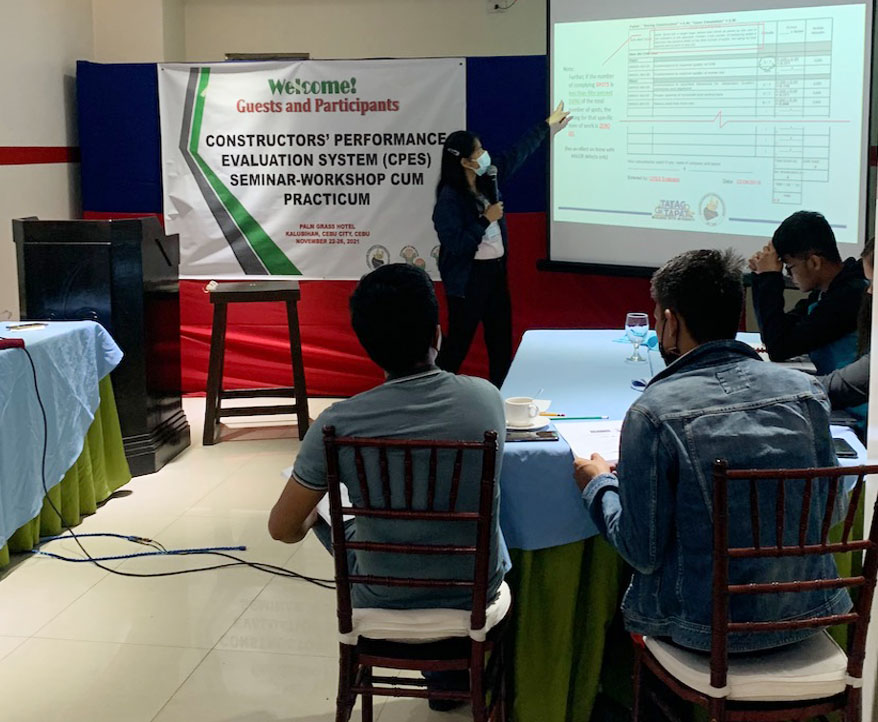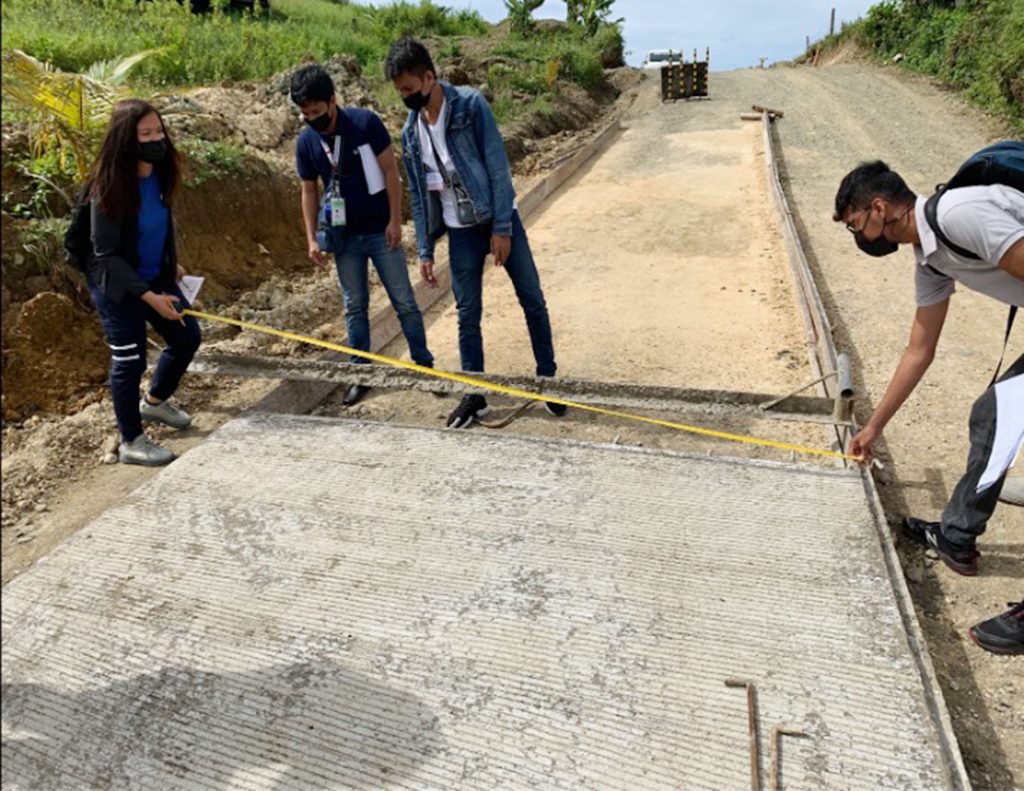
As the Philippine Council for Agriculture and Fisheries (PCAF) targets to ramp up the evaluation of more Department of Agriculture (DA) infrastructure projects in 2022, the agency continued the fourth installment of the Constructor’s Performance Evaluation System (CPES) Seminar Workshop-cum-Practicum through a four-day workshop on October 22 to 26, 2021 in Cebu.
PCAF collaborated with the Department of Trade and Industry – Construction Industry Authority of the Philippines (DTI-CIAP) and Bureau of Agricultural and Fisheries Engineering to conduct the training which was participated by 12 agricultural and biosystems engineers of DA regional field offices VII and VIII.
It aims to provide the participants with knowledge and information about CPES, demonstrate the application of CPES methodology effectively in the evaluation and monitoring of infrastructure projects of DA, and equip them with proper attitude and behavior befitting a government Constructors’ Performance Evaluator (CPEs).

The workshop included a series of lectures, a written examination on a case study, and a field practicum in which the participants will evaluate an on-going DA infrastructure project and then present their findings and observations thereafter. Participants must pass the written examination and the practicum to complete the training course.
Aside from these, the training is one of the basic requirements for the accreditation of CPEs. It was also noted in the past that more DA accredited evaluators needed to carry out evaluations across different regions of the country. Many DA regional field offices and other implementing offices have also requested the evaluation of their infrastructure projects. In response, PCAF already mapped out the initial schedule for evaluations in the first semester of 2022.
During the opening program of the training, Engr. Francia Macalintal, the DA CPES-IU assistant head, emphasized the importance of CPES in ensuring that DA infrastructure projects are of premium quality for the benefit of DA beneficiaries and other stakeholders.
The rhetoric was supported by Engr. Cerilo Namoc, OIC Regional Technical Director of DA RFO-VII. He stressed the massive responsibility that comes with being a CPE.
The resulting evaluation rating given by the CPES team for the contractors will be a determinant of their ability to secure more government infrastructure projects in the future.
All the participants in the training have passed the written examination and practicum, which makes them eligible to apply for accreditation. Other documentary requirements for accreditation will then be submitted by the trained engineers for subsequent endorsement of their applications to DTI-CIAP, which conducts the final evaluation of CPE applicants. Once accredited, the trained engineers will be tapped by PCAF for the evaluation of various infrastructures throughout the country.
According to Section 12, Annex E of the R.A. No. 9184 or the Government Procurement Reform Act requires all procuring entities implementing government infrastructure projects to evaluate the performance of their contractors using the NEDA-approved CPES Guidelines.
By virtue of Section 24 of Republic Act No. 10601 (Agricultural and Fisheries Mechanization Law) and DA Special Order No. 861, the creation of DA CPES-Implementing Unit was formalized under the Interim Agricultural and Fisheries Mechanization and Engineering Unit of PCAF. | JC with reports from PDCD-AFMEU











